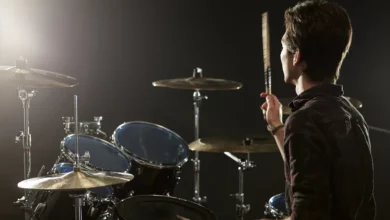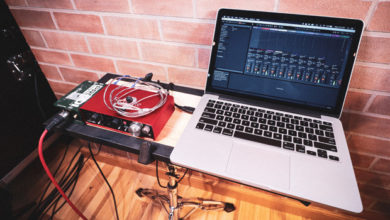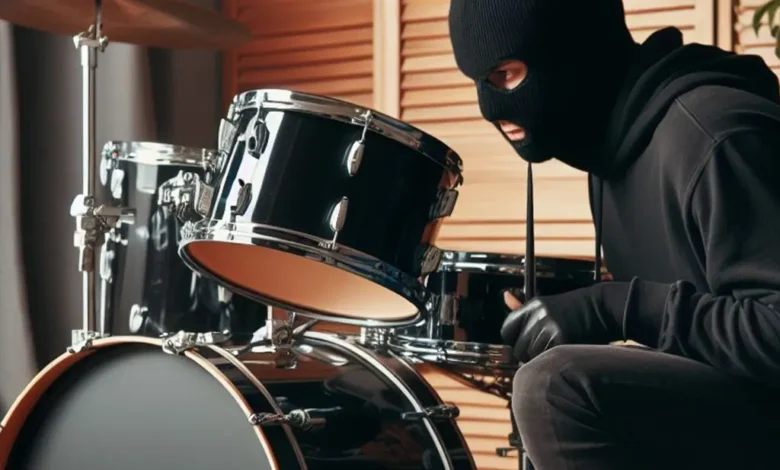
We may earn a commission from the affiliate links on this site. Learn more›
What’s a drummer’s worst nightmare? No, it’s not the kick drum gradually sliding away from you during a gig (though that is incredibly annoying). It’s not even the fear of the throne breaking mid-show and the post going straight up your… well, you get the point.
It’s having all of your hard-earned gear stolen and not being able to do anything about it.
Before that happens to you, we’ve come up with seven key steps you need to take to protect yourself from theft. By the end of this article, you’ll know everything you need to reduce the risk of your equipment getting stolen.
So, if you want to avoid the headache of using your next several paychecks to replace all your stolen drum equipment, read on!
1. Document Your Equipment
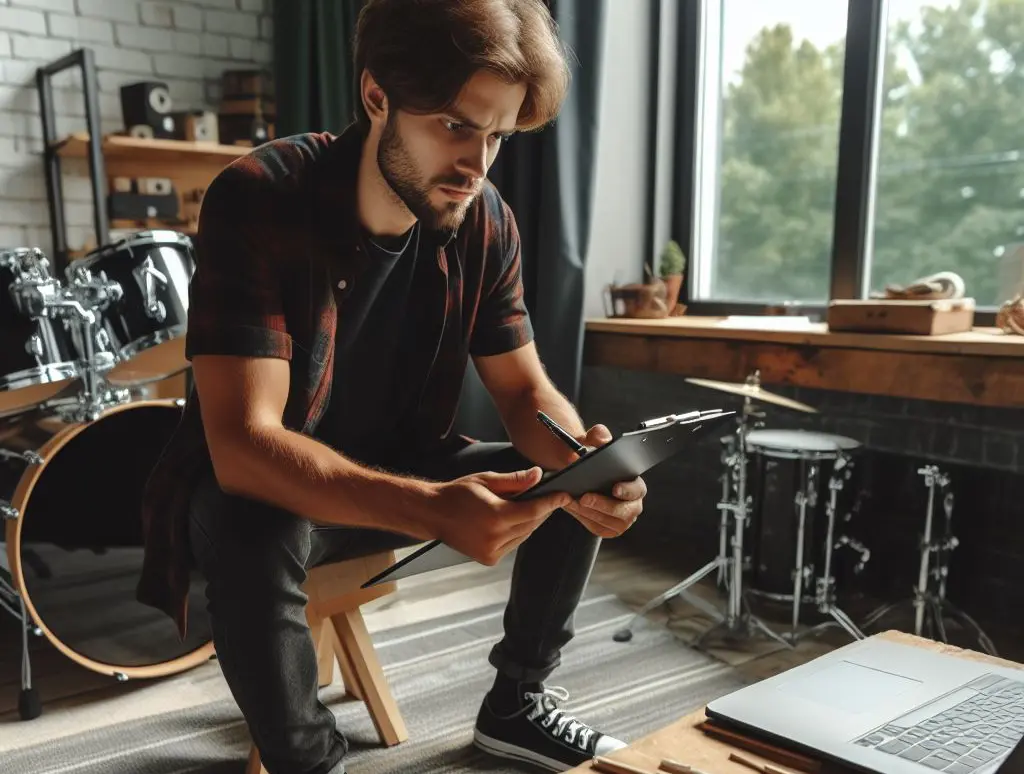
The first step in preventing your drums from getting stolen is documentation. You should keep a running list of your gear—jot down the make, model, brand, serial number, color, and size of your equipment. When you buy new gear, immediately add it to the list.
This is essential in keeping track of your drums in the event anything gets stolen. Without detailed notes, you won’t be able to provide much useful information to local authorities or pawn shops (a favorite of thieves looking to sell stolen goods).
Personally, I have a Google Drive folder dedicated to my music gear. In that folder, I have a document that contains all the info for each piece of equipment I own. You can use any documentation app you’d like, but as someone who buys and sells equipment often, I’d recommend Google Docs or Google Sheets for their accessibility and ease of use.
2. Photograph Your Equipment
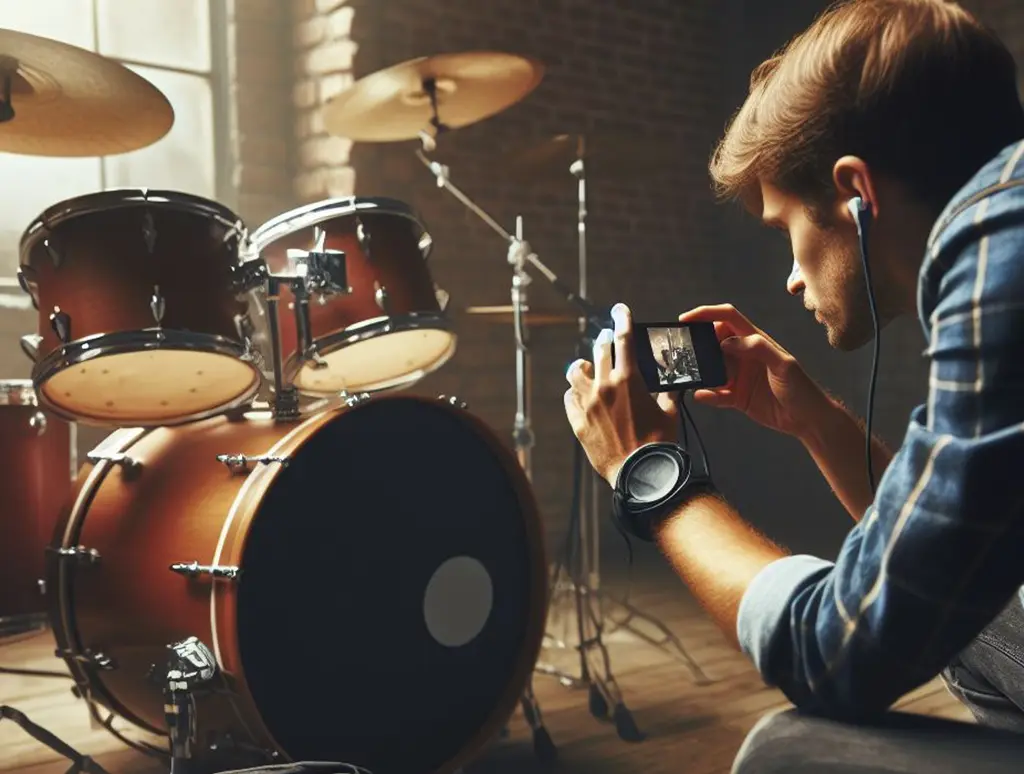
Sometimes, it isn’t enough to solely document your gear. That’s where photos come in. You’ll want to take photographs of all your equipment, especially gear with one-of-a-kind identifying marks.
Does your crash cymbal have a crack in it? Does any of your equipment have noticeable dings, dents, or scratches? Photograph those unique markers; it’ll be much easier to identify your gear if it gets stolen. Thieves can remove serial numbers and stickers but can’t easily mask damage.
3. Get Your Drums Insured
No one likes paying for insurance, but most musicians would rather pay for an annual insurance policy than have to drop $3000 to replace a stolen drum kit.
If you have the means to afford insurance for your drums, it’s a no-brainer—it’s the only way to ensure that you won’t come out empty-handed if you’re the victim of theft.
Want to learn more about musician’s insurance? Sweetwater has an excellent article that explores this topic in-depth.
4. Always Unload Your Drums After a Performance
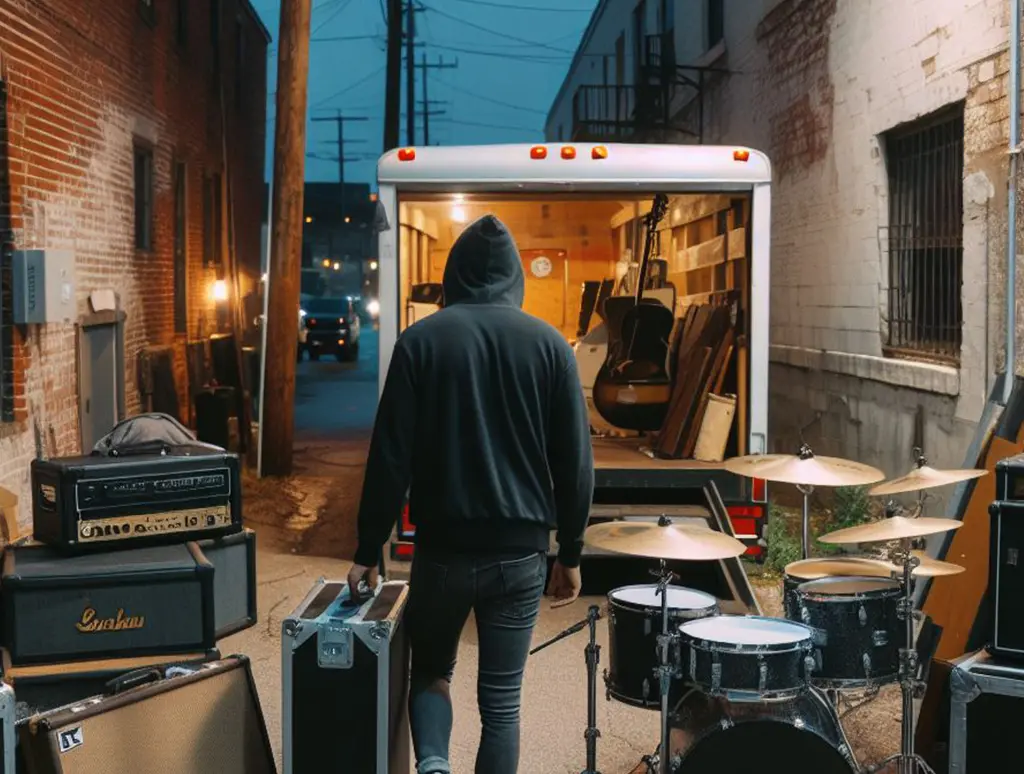
Picture this—you just finished playing a bangin’ set at your local venue. You nailed all your fills, kept perfect time, and didn’t even stare daggers at your bassist when he made awful crowd banter. You’re on top of the world.
You exit the venue, hastily stow your drums in the trunk of your van, head home, and call it a night without lugging your gear inside. Surely, you can leave your drums unattended for just one evening, right?
Of course you can! If you’re cool with parting ways with thousands of dollars of gear.
The easiest way to risk getting your drums stolen is by leaving them in your vehicle. Thieves can look through your car’s window, see all your fancy-looking cases, and make your vehicle their next mark.
Even if you live in a secluded area or a safe neighborhood, there’s always a chance that your drums could be stolen from your car. It’s worth the peace of mind to bring them inside as soon as you get home—don’t belabor unloading them; you won’t want to do it once you’ve settled down for the night.
5. What to do if you aren’t going to unload your drums
Despite what I’ve just said, I know some of you won’t bring your drums inside. I get it—I used to leave equipment in my van overnight when I was younger. Luckily, nothing was ever stolen, but I’m sure it would’ve been by now if I hadn’t changed my ways.
So, here’s what to do if you’re not going to bring your drums inside:
- Use a blanket to cover your gear. Everyone has (or should have) a dedicated car blanket. These are great for obscuring expensive drum equipment.
- Cover your windows. If you have window covers, put them up before heading inside for the night. If thieves can’t see your shiny new drums, they’re less likely to break into your vehicle.
- Back your car up to a wall. If the easiest way to access your gear is through the trunk, make it difficult for criminals to break in and steal your equipment. Park your car with the trunk up against a wall, making it much more difficult for anyone trying to break in.
- Lock your vehicle. It should go without saying, but triple-check that your car is locked. Sometimes, the simplest things are the easiest to forget.
- Don’t gig with your nicest gear. If you’re the type of drummer who always leaves your kit in the car, it might be best to perform with cheaper equipment that you’re more comfortable losing. Not all of us have the cash for two separate kits, but if you do and you chronically leave your drums in the car, it’s better to lose a beater kit than your nicest gear.
As I said, leaving your drums in the car isn’t a safe option. It’s best to bring them inside and not worry about break-ins. But, if you’re not going to unload your gear, these steps will decrease the chance of theft.
6. Keep your rehearsal space secure
This might be self-explanatory, but you must keep your rehearsal space secure whenever you’re not using it. Whether you keep your drums in your garage, basement, or a separate studio, you should make sure your doors and windows are locked at all times.
If you have a basement or first-floor practice space, keeping your windows covered is a good idea. This minimizes the chance of thieves peering in and seeing a jackpot of easily stealable equipment.
You may even want to consider installing bars on windows for good measure. They may not look pretty, but it’s a much better alternative to going to your rehearsal space and finding an empty studio.
For the big spenders, installing a security camera is an excellent way to prevent theft. Get one inside or outside your practice space, and you can monitor and identify anyone attempting to break in.
I use Ring cameras throughout and outside the house, but most security cameras will do the trick.
7. Invest in GPS tracking equipment
It may sound like overkill, but a GPS tracker is an excellent option if you want to know where your drums are at all times. You can buy a few compact tracking devices, stash them in small or hidden pockets in your drum cases, and you’ll be able to locate your gear if it’s stolen.
Many small GPS trackers can also be affixed to your equipment. It may not look the coolest, but if it doesn’t impact your sound or ability to play, it’s something to consider.
Make sure to purchase a GPS tracker and not a Bluetooth tracker—a Bluetooth device like the Apple AirTag only has a range of about 35 feet. That won’t do you much good unless the thief who stole your drums feels like hanging around your house to have a beer and watch the game.
Final Thoughts
No musician wants to walk into their practice space and find all their equipment has vanished into thin air. Reclaiming stolen gear is difficult, time-consuming, and painful if it can’t be recovered.
While nothing can eliminate the theft risk, these seven steps provide an actionable plan for protecting your drum equipment.
Preventing theft is only one element of keeping your drums safe, though. If you’re the type of player who can’t stomach the thought of your kit getting scratched, damaged, or banged up, you’ll want to check out our article, 3 Best Drum Cases for Keeping Your Drums Safe.


